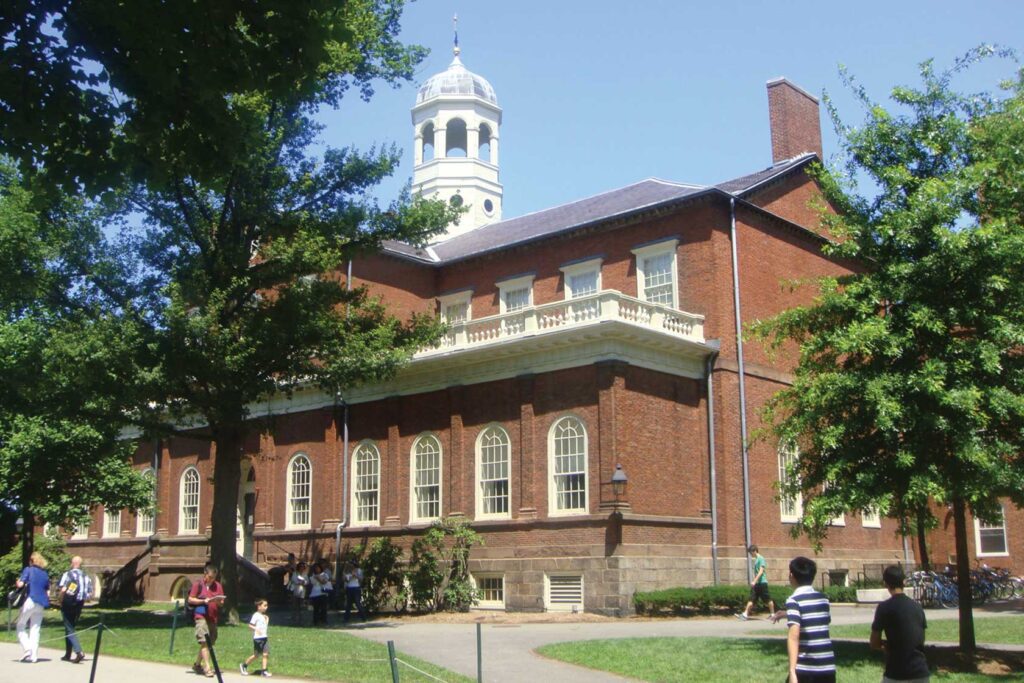Federal complaint targets Harvard’s legacy admissions
Group says ‘unfair’ practice favors white applicants

A group of Boston-area civil rights lawyers and advocates has filed a federal civil complaint against Harvard University claiming its longstanding practice of granting so-called legacy and donor-related college admissions favors white applicants and is “unfair and unearned.”
Lawyers for Civil Rights filed its complaint on behalf of several organizations shortly after the U.S. Supreme Court voted 6-3 to ban race-conscious college admissions. (The court sided with Students for Fair Admissions, which argued that racial classification in college is unconstitutional.)
The complaint said legacy admissions — where students benefit from having a parent or relative attend a college — violates Title VI of the Civil Rights Act of 1964 and urged the elimination of policies that have systematically disadvantaged students of color.
“We’re looking for justice and fairness,” said Abdulkadir Hussein, founder and CEO of African Community Economic Development of New England, one of the groups in the complaint. “[College admissions are] not based on merit now, it’s based on last names … how big your checking account [is].”
The lawyer group said nearly 70% of Harvard’s donor-related and legacy applicants are white, and they receive a substantial boost based on their status. Donor-related applicants are nearly seven times more likely to be admitted than non-donor-related applicants, and “legacy” students are nearly six times more likely to be admitted, they added.
For the Class of 2019, they said, about 28% of the class had a parent or other relative who went to Harvard, while “qualified and highly deserving applicants of color are harmed as a result.”
“This preferential treatment has nothing to do with an applicant’s merit,’’ Lawyers for Civil Rights said in a press statement. “Instead, it is an unfair and unearned benefit that is conferred solely based on the family that the applicant is born into. This custom, pattern, and practice is exclusionary and discriminatory. It severely disadvantages and harms applicants of color.”
Lawyers for Civil Rights filed the complaint with the U.S. Department of Education’s Office of Civil Rights on behalf of the Chica Project, the African Community Economic Development of New England and the Greater Boston Latino Network.
“The admissions policies that prefer applicants with ties to Harvard donors and Harvard alumni are discriminatory,’’ said Michael Kippins, an attorney who represents the clients in the complaint. “They have a disproportionate and unjustified impact on applicants of color.”
The groups urged Harvard to follow other institutions that have abandoned unfair preferential legacy admissions, such as Amherst College, Johns Hopkins University and Massachusetts Institute of Technology, according to the complaint.
Harvard has declined to comment on the complaint, according to Nicole Rura, senior communications officer for the university.
In an email, she repeated a press release stating, “In the weeks and months ahead, the university will determine how to preserve our essential values, consistent with the Court’s new precedent.”
Additionally, the complaint refutes the assertion that donor financial contributions would decrease if alumni and donor bias in admissions were disqualified. It referenced a 2010 research study that says “maintaining legacy admissions has little to no effect on alumni fundraising efforts.”
Edward Blum, the president of Students for Fair Admissions, which won the Supreme Court case, said he believes it is “highly unlikely” that challenges to legacy and donor admissions preferences would be successful because they are very different from racial preferences.
“Those two policies don’t violate our constitution or violate our civil rights statutes,” Blum said.
“Now, this is not to say that most Americans, including Students for Fair Admissions, approve of legacy preferences or donor preferences,’’ he added. “We showed in court that along with preferences for faculty and staff and preferences for esoteric sports like fencing and water polo, [these] diminish individualized consideration.”
Hussein, of the African community group, countered that the legacy admissions issue impacts the youth his organization serves. He said many of them are first-generation Americans who don’t have the legacy or money to leverage an admissions decision in their favor.
Hussein urged higher education institutions to continue to “create and promote diversity and inclusion” to open college access to a diversity of applicants.






